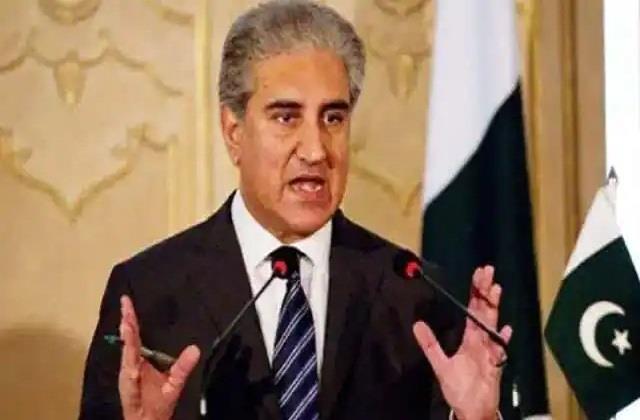
The previous Pakistan Muslim League-Nawaz government “complicated” the Kulbhushan Jadhav case, according to Pakistan’s foreign minister, Shah Mahmood Qureshi. Qureshi also claimed that India was attempting to take Pakistan to the International Court of Justice (ICJ) for failing to implement its verdict.
Qureshi said on Sunday, “Pakistan Muslim League-Nawaz (government) complicated the case of Kulbhushan Jadhav.”
Kulbhushan Jadhav, a 51-year-old retired Indian Navy officer, was apprehended in Balochistan in March 2016. In April 2017, a Pakistani military court sentenced Jadhav to death on espionage and terrorism charges. India has denied the charges levelled against Jadhav, claiming that he was abducted by Pakistani operatives from the Iranian port of Chabahar, where he was conducting business. In 2018, the International Court of Justice (ICJ) stayed Jadhav’s execution.
India filed a complaint with the International Court of Justice (ICJ) in The Hague against Pakistan for denying Jadhav consular access and challenging his death sentence. The International Court of Justice (ICJ) ruled in July 2019 that Pakistan must conduct a “effective review and reconsideration” of Jadhav’s conviction and sentence, as well as grant consular access to India without further delay.
On Thursday, Pakistan’s Parliament rushed through a bill that will allow Kulbhushan Jadhav to appeal the death sentence imposed by a military court, despite opposition protests accusing the government of violating parliamentary principles. The bill also seeks to grant Jadhav consular access in accordance with the ICJ ruling.
Qureshi claimed that opposition MPs who voted against the bill to provide relief to Jadhav were “speaking India’s language.” “India wants Pakistan to ignore the ICJ decision, and the opposition wants this as well,” he said.
Law minister Farogh Naseem added the ICJ had asked Pakistan to enact legislation to provide the right of appeal to Jadhav. If the bill wasn’t passed, India could initiate contempt proceedings against Pakistan in the ICJ, Naseem said.




